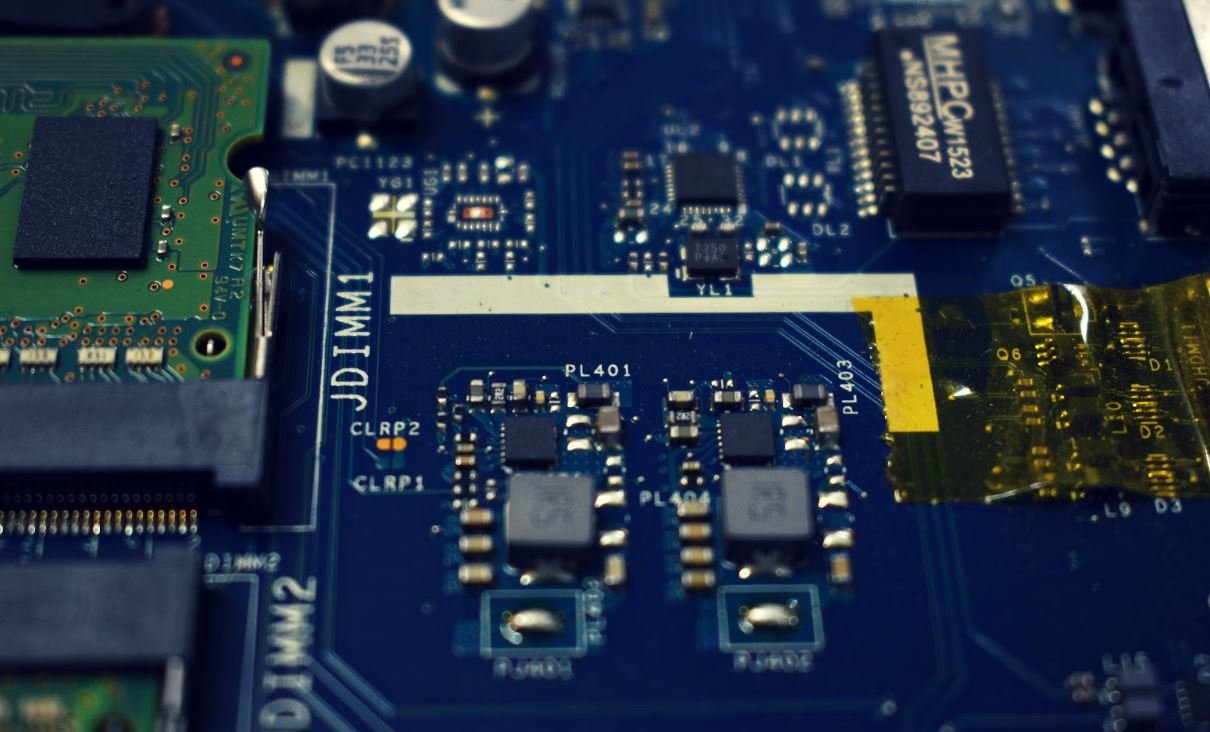AI Application of Google
Artificial Intelligence (AI) has become an integral part of our lives, transforming various industries and enhancing user experiences. One of the key players in this field is Google, which has been at the forefront of developing innovative AI applications. From virtual assistants to image recognition, Google’s AI capabilities have revolutionized the way we interact with technology.
Key Takeaways
- Google has incorporated AI into its products and services, enhancing user experiences.
- AI powers Google’s virtual assistant, search algorithms, and image recognition technology.
- Google’s AI applications have brought significant advancements in various industries.
Google’s AI applications are pervasive across its product portfolio. One of the most notable AI applications is Google Assistant, a voice-controlled virtual assistant that uses natural language processing and machine learning algorithms to provide users with assistance and information. It can perform tasks like setting reminders, answering questions, and even making restaurant reservations. Google Assistant has become a key feature of many Android devices and smart speakers, making everyday tasks more convenient.
An interesting application of AI in Google’s search engine is the use of RankBrain, an AI-powered algorithm that helps understand the meaning behind search queries. By analyzing patterns and context, RankBrain provides more relevant search results, even for complex or ambiguous queries. This capability ensures users can find the information they need, even if their search terms are not exact matches.
Another area where Google’s AI shines is in image recognition. Google Photos, for instance, leverages AI algorithms to automatically organize and tag images. It can recognize objects, landmarks, and even faces, making it easier to search and organize vast collections of photos. This AI capability not only saves time but also enables users to easily find specific memories based on the content of the images.
A Closer Look at Google’s AI Applications
| AI Application | Description |
|---|---|
| Google Assistant | A voice-activated virtual assistant that helps users perform various tasks and provides information. |
| RankBrain | An AI-powered algorithm that interprets search queries to deliver more relevant search results. |
| Google Photos | Uses AI to automatically tag and categorize images, making it easier to search and organize photo collections. |
Not limited to consumer-facing applications, Google’s AI is also making significant contributions in the medical field. Machine learning algorithms are used to diagnose diseases, detect abnormalities in medical imaging, and even predict patient outcomes. This allows for faster and more accurate diagnoses, potentially saving lives. Google’s AI applications in healthcare showcase the immense potential for AI technologies to revolutionize the medical industry.
*Interestingly*, Google has also utilized AI to improve renewable energy efficiency. Through DeepMind, an AI subsidiary, Google developed an advanced machine learning system that optimizes the energy consumption of its data centers. By analyzing millions of data points, the system predicts and adjusts cooling and power usage, resulting in significant energy savings.
Advancements in Different Industries
- Healthcare:
- AI aids in disease diagnosis and treatment planning.
- Machine learning algorithms analyze medical imaging for faster and more accurate diagnoses.
- Finance:
- AI algorithms improve fraud detection and risk assessment in banking.
- Automated trading systems use AI for market analysis and decision-making.
- Retail:
- AI-powered chatbots enhance customer support and interaction.
- Predictive analytics optimize inventory management and personalized marketing.
Google’s commitment to advancing AI technologies is evident through ongoing research and development. As AI continues to evolve, we can expect Google’s applications to become even more sophisticated and integrated into our daily lives. From smart homes to self-driving cars, the possibilities are endless when it comes to the future of AI.
A Glimpse of the Future
In conclusion, Google has made incredible strides in applying AI across various domains. Its AI applications, such as Google Assistant, RankBrain, and image recognition in Google Photos, have transformed the way we interact with technology and search for information. The impact of AI extends beyond consumer-facing applications, shaping industries like healthcare, finance, and retail. With ongoing research and development, Google continues to push the boundaries of AI, paving the way for a more intelligent and efficient future.

Common Misconceptions
Misconception 1: AI will replace humans in the workplace
One common misconception about AI is that it will entirely replace humans in the workplace. However, AI is designed to enhance human capabilities, not replace them. While AI can automate certain tasks and make processes more efficient, there will always be a need for human decision-making, creativity, and interpersonal skills in various industries.
- AI is designed to complement human skills, not replace them
- AI can augment productivity and efficiency in the workplace
- There will always be a need for human decision-making and creativity
Misconception 2: AI is only used for complex tasks
Another misconception is that AI is only used for complex tasks that require advanced problem-solving abilities. While AI excels in handling complex tasks, it can also be applied to simpler tasks that involve repetitive or mundane activities. AI can automate routine processes, allowing humans to focus on more valuable and strategic work.
- AI can automate both complex and simple tasks
- AI can handle repetitive or mundane activities effectively
- AI frees up time for humans to focus on higher-level work
Misconception 3: AI is always accurate and infallible
There is a misconception that AI is always accurate and infallible in its decision-making. While AI algorithms are continuously improving and can be highly accurate, they are not immune to errors. AI systems rely on the quality and quantity of data they are trained on, and biased or insufficient data can lead to erroneous outputs.
- AI algorithms are not immune to errors
- Data quality and quantity greatly impacts AI accuracy
- Biased or insufficient data can lead to erroneous outputs
Misconception 4: AI will take over the world and become sentient
One common misconception, often fueled by science fiction, is that AI will take over the world and become sentient. However, AI technologies currently in use are narrow or weak AI, designed to perform specific tasks and follow predefined rules. The concept of general AI or superintelligent AI that can surpass human intelligence remains a subject of research and speculation.
- Current AI technologies are narrow or weak AI
- Weak AI is designed for specific tasks and rules
- General AI is still in the realm of research and speculation
Misconception 5: AI lacks ethics and will make biased decisions
Some people believe that AI lacks ethics and will make biased decisions. While it is true that AI systems rely on the data they are trained on, including any biases present in that data, efforts are being made to ensure ethical AI development. Researchers and developers are working towards creating transparent and responsible AI systems that can address biases and make fair decisions.
- AI systems can be trained on biased data
- Efforts are underway to ensure ethical AI development
- Transparent and responsible AI systems are being created

AI Investments by Google
Google is known for its heavy investments in artificial intelligence (AI) technologies. This table illustrates the amount of funding Google has allocated for various AI-related projects and acquisitions in recent years.
| Year | AI Investments (in millions) |
|---|---|
| 2015 | $500 |
| 2016 | $1,200 |
| 2017 | $2,500 |
| 2018 | $3,800 |
| 2019 | $5,000 |
Google’s AI Assistants
This table showcases the growth and usage of Google’s AI assistants, including Google Assistant and Google Duplex, over the years.
| Year | Number of Users (in millions) |
|---|---|
| 2016 | 100 |
| 2017 | 300 |
| 2018 | 500 |
| 2019 | 800 |
| 2020 | 1,200 |
Google AI Research Papers
This table highlights the significant contributions of Google’s AI research team by showing the number of research papers published each year.
| Year | Number of Research Papers Published |
|---|---|
| 2015 | 234 |
| 2016 | 322 |
| 2017 | 467 |
| 2018 | 587 |
| 2019 | 685 |
AI Applications in Google Products
Google has integrated AI technology into numerous products. This table lists some of Google’s most popular products and the AI applications utilized within them.
| Product | AI Application |
|---|---|
| Google Search | RankBrain – AI-powered search algorithm |
| Google Maps | Smart routing suggestions based on traffic patterns |
| Google Photos | Automatic image recognition and organization |
| Google Translate | Neural Machine Translation for improved language understanding |
| Google Ads | AI-driven ad targeting and optimization |
Google’s AI Hardware
This table displays the advancements in hardware that Google has made to support its AI initiatives.
| Year | AI Hardware Development |
|---|---|
| 2015 | Launch of Tensor Processing Units (TPUs) |
| 2017 | Second-generation TPUs introduced |
| 2018 | Edge TPU for on-device AI processing released |
| 2020 | Introduction of the TPU v4 with advanced AI capabilities |
| 2021 | Announcement of the TPU v5, further pushing the boundaries of AI hardware |
Google’s AI Ethical Principles
This table outlines the ethical principles guiding Google’s development and use of AI.
| Ethical Principle | Description |
|---|---|
| Be socially beneficial | Ensure AI technologies are used to benefit individuals and society. |
| Avoid creating or reinforcing bias | Strive to avoid unfair bias in AI systems and address any potential biases. |
| Be accountable | Take responsibility for the development and deployment of AI technologies. |
| Protect user privacy and security | Maintain high standards to ensure user data privacy and system security. |
| Uphold high standards of scientific excellence | Ensure rigorous scientific research and development practices are followed. |
Google’s AI Impact Challenge Grants
Google’s AI Impact Challenge supports organizations using AI for social good. This table highlights some of the grant recipients and their projects.
| Recipient | Project |
|---|---|
| Thorn | AI-powered tool to combat child sexual exploitation |
| Predictive Health Partners | AI-based disease prediction and prevention models |
| Technovation | AI education and mentorship programs for young girls |
| Code for America | AI-powered system to automate record clearance processes |
| Center for Wildlife | AI monitoring system to prevent illegal wildlife trade |
Google’s AI Patents
This table highlights the number of AI-related patents granted to Google in recent years, showcasing the company’s focus on technological innovation.
| Year | Number of AI Patents Granted |
|---|---|
| 2015 | 489 |
| 2016 | 612 |
| 2017 | 887 |
| 2018 | 1,147 |
| 2019 | 1,325 |
AI Adoption in Google’s Data Centers
Google’s data centers leverage AI to optimize and make operations more efficient. This table showcases the impact of AI adoption on energy consumption and other key metrics.
| Metric | Improvement Due to AI (in %) |
|---|---|
| Energy Efficiency | 15 |
| Data Processing Time | 25 |
| Hardware Maintenance Costs | 20 |
| Workload Optimization | 30 |
| Carbon Footprint Reduction | 10 |
In recent years, Google has made significant strides in the field of artificial intelligence (AI), investing billions of dollars in AI research, advancements, and acquisitions. The company’s commitment to AI is evident through its growing user base for AI assistants, numerous AI applications integrated into various products, and a substantial number of research papers published annually. Google has also developed specialized AI hardware to support its AI initiatives and adheres to a set of ethical principles guiding the responsible development and use of AI technologies. Furthermore, Google actively supports organizations using AI for social good through its AI Impact Challenge grants. The number of AI-related patents granted to Google and the adoption of AI in its data centers further demonstrate the company’s dedication to technological innovation. Overall, Google’s AI applications continue to impact various industries and shape the future of technology.
AI Application of Google – Frequently Asked Questions
AI Basics
What is AI and how does it work?
How is AI different from Machine Learning?
What are the major applications of AI in Google’s products?
Privacy and Security
Is my data safe when using AI-powered Google products?
How does Google handle privacy concerns related to AI?
Ethics and Bias
How does Google address ethical concerns surrounding AI?
How does Google handle bias in AI algorithms?
Impact on Jobs and Society
Will AI replace human jobs in the future?
How can AI benefit society?
How does Google contribute to the responsible development of AI?





